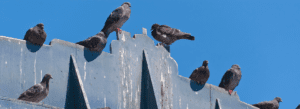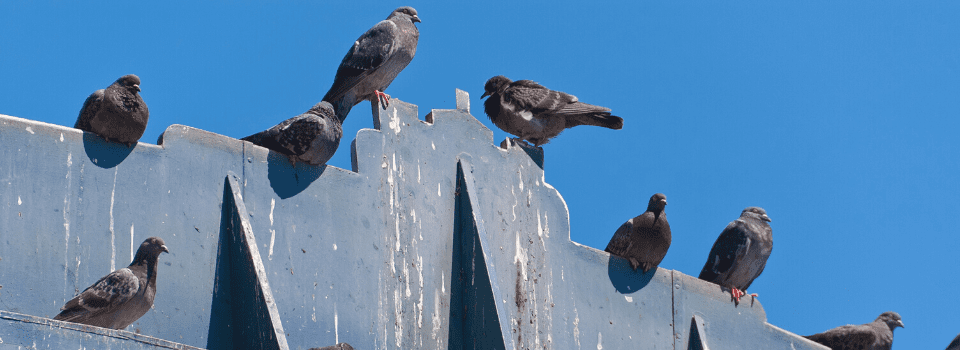An infection linked to pigeon droppings was a “contributing factor” in the death of a child at a Glasgow hospital, it has been confirmed.
The child was being treated at the Queen Elizabeth University Hospital when he or she appears to have caught the infection – a fungus called cryptococcus.
The child has not been named. The fungus did not contribute to the death in December of a second patient infected with the same pathogen, say experts.

What is it?
Cryptococcus is a yeast-like fungus that lives in the environment.
It can be found in soil contaminated by pigeon droppings.
How can you catch it?
People can become infected if they breathe it in.
The child who died in December at the hospital in Glasgow had been exposed to the fungus.
Experts say the probable source has been traced to a room on the rooftop of the hospital. Pigeon droppings appeared in the room via a small break in the wall which was “invisible to the naked eye”, Scottish Health Secretary Jeane Freeman confirmed.
The hospital says it has put infection control measures in place and no further cases have been reported.
How risky is it?
Most won’t get sick, but vulnerable people with already weakened immunity can get very ill with a chest infection or meningitis.
Expert Prof Hugh Pennington says it is very unusual to see cases in the UK.
“It is common in other parts of the world, particularly tropical parts, in the US and countries like that where they have more problems with this particular kind of fungus. But in the UK, very uncommon.
“There are cases in people who have problems with their immune systems. They’re the people who are at risk with this kind of bug.”
Cryptococcus infection cannot spread from person to person.
How dangerous is pigeon poo?
Breathing dust or water droplets containing contaminated bird droppings can lead to several diseases, including a flu-like illness called psittacosis.
Salmonella – a bacterial infection that can cause diarrhoea – may also be present in some bird droppings.
If you are cleaning up or come into contact with droppings, you should take precautions. Wash your hands and clean any exposed skin before eating, drinking or putting your hands near your mouth.
Likewise, if you are feeding or handling birds, wash your hands afterwards.
If you have a compromised immune system, including from HIV/AIDS or cancer, you should not clean up droppings.
Pigeon Patrol Products & Services is the leading manufacturer and distributor of bird deterrent (control) products in Canada. Pigeon Patrol products have solved pest bird problems in industrial, commercial, and residential settings since 2000, by using safe and humane bird deterrents with only bird and animal friendly solutions. At Pigeon Patrol, we manufacture and offer a variety of bird deterrents, ranging from Ultra-flex Bird Spikes with UV protection, Bird Netting, 4-S Bird Gel and the best Ultrasonic and audible sound devices on the market today.
Voted Best Canadian wholesaler for Bird Deterrent products ten years in a row.
Contact us at 1- 877– 4– NO-BIRD, (604) 585-9279 or visit our website at www.pigeonpatrol.ca
Pigeon/Pigeon Patrol / Pigeons Roosting / Vancouver Pigeon Control /Bird Spikes / Bird Control / Bird Deterrent / Pigeon Deterrent? Surrey Pigeon Control / Pest /Seagull deterrent / Vancouver Pigeon Blog / Birds Inside Home / Pigeons in the cities / Ice Pigeons/ What to do about pigeons/ sparrows , Damage by Sparrows, How To Keep Raccoons Away, Why Are Raccoons Considered Pests/ De-fence / Pigeon Nesting/ Bird Droppings / Pigeon Dropping/ woodpecker control/ Professional Bird Control Company/ Keep The Birds Away/ Birds/rats/ seagull/pigeon/woodpecker/ dove/sparrow/pidgeon control/pidgeon problem/ pidgeon control/flying rats/ pigeon Problems/ bird netting/bird gel/bird spray/bird nails/ bird guard

